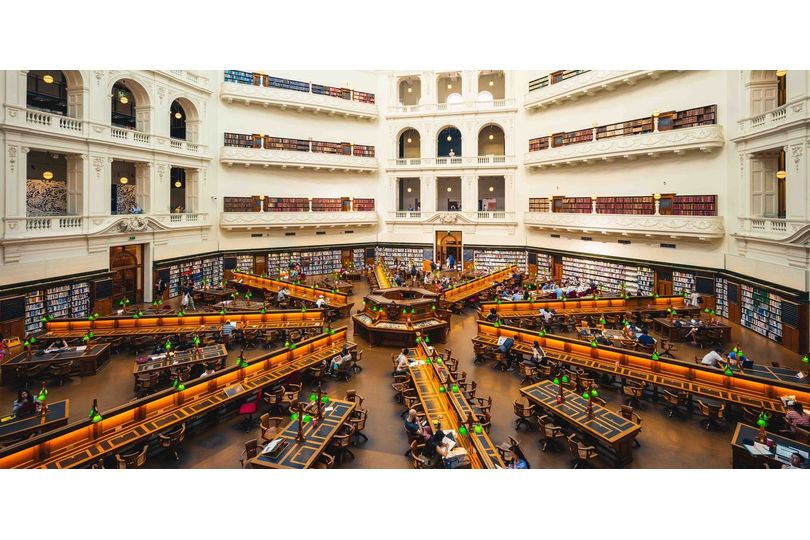Internet Archive's digital lending practices leading to lawsuit by book publishers alleging copyright infringement
on Jul 26, 2022

The Internet Archive requested that a US judge dismiss a case that four major book publishers had brought against it earlier this month. The Internet Archive is a non-profit organisation that was established in 1996 and loans the public access to digital versions of books, music, movies, and other digitised information. It intends to aid those who have trouble reading print, safeguard digital content for future generations, and democratise knowledge access. The Internet Archive's digital lending practices, according to the publishers, violate copyright willfully. The website is accused of hosting pirated content by authors as well.
The Internet Archive claims that because it only lends digital versions of the actual books it possesses, it operates like a typical library. The Electronic Frontiers Foundation, which supports it, claims that the publishers merely want "to manage how libraries may lend the books they own."
The editors were particularly concerned about the "National Emergency Library" set up by the Internet Archive in March 2020, which was intended to give teachers access to digital teaching materials in view of widespread library closures due to the COVID-19 pandemic. In June 2020, publishers Hachette, Penguin Random House, HarperCollins, and John Wiley and Sons filed a copyright infringement lawsuit. Publishers appear to want to shut down not just the National Emergency Library, but all of the Internet Archive's book lending practices. Publishers claim that the Internet Archive is committing massive willful copyright infringement by lending digital books without permission and payment to the publishers. The Internet Archive argues that since it only allows one person to check out a digital book at a time, it simply replicates regular library checking out. However, this restriction has been temporarily relaxed for the National Emergency Library. Ordinary library loans do not require payment to publishers. Once a library has purchased a book, the library is free to loan it to its members. Publishers argue that digital books are not the same as physical books and should be treated differently by the law.
Although Google won the argument about digital books years ago, this story remains complicated. Google began digitizing library books in 2002. In 2005, book publishers and authors filed a high-profile lawsuit against Google for copyright infringement that took a decade to resolve. In the case against Google, US courts have ruled that making complete copies of books and publicly displaying excerpts from those books in the Google Books database is "fair use." In ruling in Google's favor, the courts paid particular attention to the historical purpose of copyright, which is to serve the public interest in access to knowledge.
However, the Google Books decision does not mean that book publishers will lose to the Internet Archive again. In the United States, when deciding whether or not a use is fair, courts must consider the extent to which the copyright owner's markets are harmed. Since book publishers often lend e-books commercially (including to libraries), the Internet Archive could be seen as damaging to this aspect of the publishing market. It could be argued that by providing online access to books in their entirety, the Internet Archive is doing for free what publishers do for a fee. This differs from the Google Books decision, which considered that access to extracts from books in Google's database could improve the market for books.
However, the Internet Archive has the flexibility of fair use on its side. There is room for the court to assess the public utility of the Internet Archive's lending practices, which, as exemplified by the National Emergency Library, are undeniably sound. Assessing whether the public interest arguments are strong enough to outweigh the weight of market damage can be key to deciding who wins this case. The Internet Archive may also have difficulty demonstrating that its practices are simply an extension of the traditional role of libraries and transcend the confines of legitimate publishing markets. In a 2013 case involving a "used market" for digital music copies, US courts ruled that mimicking analog broadcast models was not enough to avoid copyright infringement. Access Issues in the Digital Age Behind this recent dispute lies a decade-long tension between the media industries that arose before and after the advent of the Internet.
Before the Internet, media and entertainment companies made money by selling single copies of the content (think books, CDs, DVDs). But individual copies have lost value in the Internet age. Online, access to content is sought rather than ownership of copies of the content. In the music and video industry, subscription or ad-supported streaming services such as Spotify and Netflix have largely caught on. However, the lawsuit against the Internet Archive shows that in 2022 the right legal and economic framework has yet not been found for access-based book publishing models to thrive. Finding a Way Forward Companies like the Internet Archive have tried to operate in the gray area between old and new, for example by limiting access to the number of printed books stored. Rather than working to eliminate these gray areas, publishers should view these activities as evidence of unmet demand and a lack of agility in times of crisis. Publishers need to adapt their distribution models to society's needs. Instead of imposing restrictive access policies, they should work with libraries to develop sustainable delivery models that ensure books are available to people who need access to our shared knowledge and culture.

.jpg)
.jpg)
.jpg)
.jpg)
.jpg)
.jpg)

.jpg)
.jpg)
.jpg)
.jpg)


_(1).jpg)
.jpg)










Sorry! No comment found for this post.